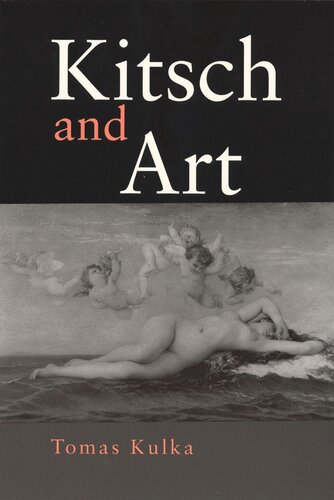

Most ebook files are in PDF format, so you can easily read them using various software such as Foxit Reader or directly on the Google Chrome browser.
Some ebook files are released by publishers in other formats such as .awz, .mobi, .epub, .fb2, etc. You may need to install specific software to read these formats on mobile/PC, such as Calibre.
Please read the tutorial at this link: https://ebookbell.com/faq
We offer FREE conversion to the popular formats you request; however, this may take some time. Therefore, right after payment, please email us, and we will try to provide the service as quickly as possible.
For some exceptional file formats or broken links (if any), please refrain from opening any disputes. Instead, email us first, and we will try to assist within a maximum of 6 hours.
EbookBell Team

4.8
34 reviewsWhat is kitsch? What is behind its appeal? More important, what is wrong with kitsch? Though central to our modern and postmodern culture, kitsch has not been seriously and comprehensively analyzed; its aesthetic worthlessness has been generally assumed but seldom explained. Kitsch and Art seeks to give this phenomenon its due by exploring the basis of artistic evaluation and aesthetic value judgments.
Tomas Kulka examines kitsch in the visual arts, literature, music, and architecture. To distinguish kitsch from art, Kulka proposes that kitsch depicts instantly identifiable, emotionally charged objects or themes, but that it does not substantially enrich our associations relating to the depicted objects or themes. He then addresses the deceptive nature of kitsch by examining the makeup of its artistic and aesthetic worthlessness. Ultimately Kulka argues that the mass appeal of kitsch cannot be regarded as aesthetic appeal, but that its analysis can illuminate the nature of art appreciation.